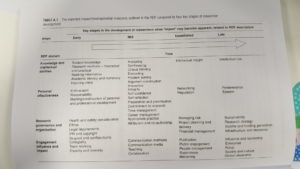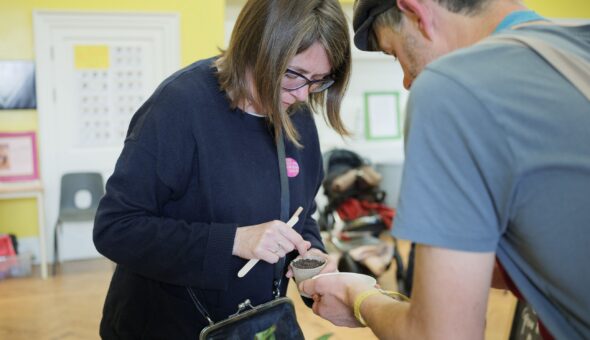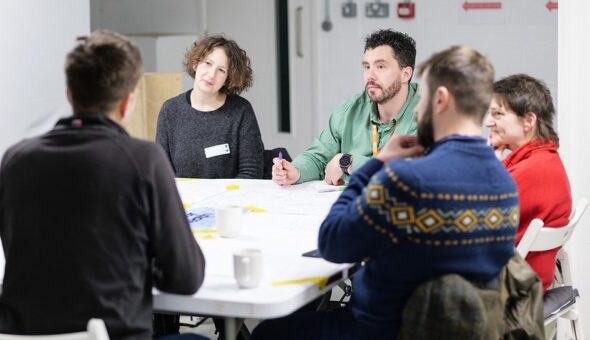As part of our ChallengeCPD project we have convened colleagues from across the research and professional services community at the University, public engagement professional peers from across the sector and critical friends who will be able to help us make sense of the challenge of professional development in public engagement with research for our first meeting on November 8 2017. What a great start to our project! I've come away with so much to think about.
Back to Basics
I loved that we went right back to basics.
Q: What is our ultimate goal?
A: To make public engagement with research better.
Q: Is CPD the right response to this end?
A: IDK! It is, right? Maybe not?
Factors Affecting Public Engagement
We also discussed some of the hidden drivers for this that might be skewing our work. Most notably the discrepancy in Factors Affecting Public Engagement which highlighted the discrepancies between those wanting training, those getting it, and those finding value from it. What do we really care about: better PER, or better reporting?
Going where the people are
We need to get public engagement with research CPD to places where people go for professional development and advice. We can't expect people to come to us all the time. We know that the people we work with through the PEU are people who are generally predisposed towards public engagement with research. If we want to reach beyond (and we do) then we have to get around a bit. We do that to some extent for example through the Public Engagement Unit's involvement in the Bath Course and the Prize Fellows, and we explored it a little with our guides for supervisors, but we can definitely do more.
The individual not the intervention
I was also reminded that professional development is about the individual and their development, not about the interventions that we put in place and trying to evidence the impact of them. We discussed how key learning moments might not have been perceived as 'training' at the time. A visit to a seminar, a conversation with someone, a glance at a magazine article. How often are our professional development moments happening because we are following an interest? Not forgetting that these moments and opportunities happen outside of the work environment. What skills do you have from your hobbies that you apply at work?
We have small grants for public engagement. One of the conditions of the grant is to report on what you've learned from the project. The learning reported has often been fairly pragmatic. It wasn't until we started leaving a delay in reporting that we began to hear about the longer term benefits of the funds. In recognition that the process of reflecting can be important in surfacing the learning (and to reduce report writing), we've asked an external colleague to talk with our last fundees. This is beginning to demonstrate the longer term (professional) benefits of the work.

This table in the back of Pam Denicolo's book really struck me. It highlights when particular aspects of the Researcher Development Framework would be noticed / evidenced. See how engagement features in established academics? Yet we talk about and enable PER very early in a researcher's career.
We also talked about the role of CPD interventions in surfacing and validating existing experience and knowledge. It was also noted that this can be incremental - be careful of making this sound as if people are somehow 'not good enough.' I came away with some useful frameworks which I'll put in another post.
All of this has left me wondering how we can shape our CPD to be more reflective, more about enabling people to realise the knowledge and skills they already have, and more about the individual and their progression.
Respond

